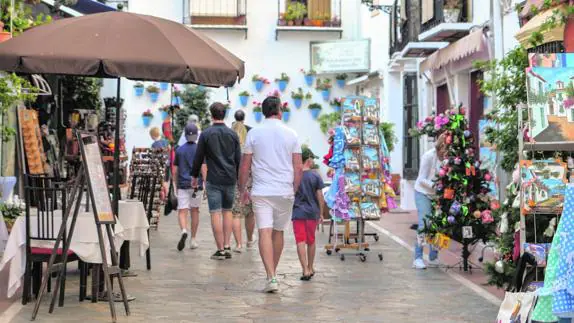Hacienda letter sparks concern that non-residents trapped during lockdown will have to pay tax in Spain
In a formal written reply to a Lebanese couple, the Tax ministry told them that they would be considered Spanish income tax payers having stayed more than 183 days - despite not wanting to
H. BARBOTTA / P. MARTÍNEZ
Viernes, 2 de octubre 2020, 14:54
The conference this week on Residential Tourism at the Hotel Anantara Villa Padierna discussed the likely effects on second-home owners of the obligation for people trapped in Spain during lockdown to pay taxes to Madrid if they were here for more than six months.
Although some non-resident expats never intended to stay more than 183 days, the limit beyond which the Spanish government generally considers a person to be tax resident, some were caught out and overstayed.
In a formal written reply to a Lebanese couple, considered a guide for other future cases, Hacienda, the Tax ministry, removed any doubt that a tax return would be due.
Its statement read, "In this case, with regard to the stated rule for stays over 183 days within any 12-month period in Spanish territory, the days spent in Spain by the married couple, due to state of alarm, would be counted, in which case if they were to remain more than 183 days in Spanish territory in 2020, they would be considered Spanish income tax payers."
There was discontent from commentators over the decision, as the Spanish public administration had suspended legal time frames for its own activity during lockdown, a move that has not been extended to taxpayers.
At the Costa conference, businessman Ricardo Arranz said the ministry's move was discouraging. "How are they going to make a person pay income tax who has been forced [to be here] as they couldn't return to their country," he asked. "[The government] should be paying for their lockdown, not charging them."
Juan Ramón Rubio, from Deloitte, felt that the decision could have an adverse affect on the residential tourism sector by causing uncertainty. "It's not something that's going to help the market to recover," he explained.
